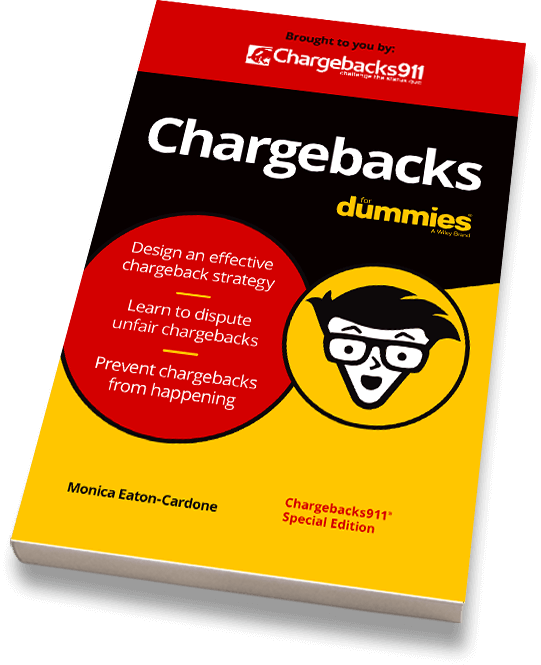Consumers have the legal right to dispute debit- or credit-card charges they believe invalid. We look at how payment disputes impact everyone involved.

Globally, about 1 billion credit card transactions happen every day. Most occur with no problems; the cardholder makes a purchase, then the merchant gets paid. Everyone is happy…right?
Of course, with that many transactions happening, you’re going to run into the occasional customer who’s dissatisfied with a purchase. That’s when customer payment disputes enter the picture.
What are payment disputes? Are they the same as refunds? Is it easier for consumers to just skip the merchant altogether? In this post, we cover different types of payment disputes, find out who is involved in the process, and examine the situations in which disputes should–and should not–be used.
[noun]/* pā • mənt • di • spyo͞ot /
A payment dispute involves a situation in which a cardholder claims a transaction registered to their account is invalid. The cardholder contacts their bank to explain the situation and ask that the bank reverse the transaction.
In simple terms, a payment dispute is simply a disagreement between a cardholder and a merchant about a charge. This can be a little confusing; Visa uses the term “dispute” in place of the term “chargeback.” For other card brands, though, disputes and chargebacks are not necessarily the same thing. For these card networks, a dispute happens before a chargeback.
A dispute typically starts after a payment card transaction. The cardholder might see a questionable charge on their monthly statement, or they believe the merchant is taking advantage of them. The customer then calls the bank which issued their card to dispute the payment.
If the issuer is able to explain the payment to the customer’s satisfaction, the case will be closed. Otherwise, the transaction dispute is escalated to a chargeback, which is much worse for the merchant.
Learn more about transaction disputes
If a cardholder wants to undo a transaction, calling the bank seems like a reasonable solution. It’s not always the right move, though.
Disputes and refunds are very different processes. Traditional refunds come directly from the merchant. With disputes, though, the bank pays the consumer up front. They then claw back the transaction amount from the merchant’s account.

Chargebacks for Dummies
Chargebacks can wreak havoc on your cash flow and profitability. This FREE paperback book is your guide for preventing chargebacks and, when they happen, fighting them more effectively.
From a customer’s perspective, there doesn’t seem to be much difference: they get their money back either way. Comparing the two actions side-by-side, however, shows how chargebacks are much harder on the merchant.
Learn more about disputes vs. refunds
All parties have something to lose with a payment dispute. Even the banks and card networks prefer to avoid them. To learn why, let’s take a quick look at how the dispute process works.
The Fair Credit Billing Act of 1975 (FCBA) gave cardholders the legal right to dispute credit card charges under certain circumstances. Specifically, it applies in cases of fraud or merchant error. Factors such as card brand or issuing bank can change details of the process, but there are some general points to know.
First are the time limits. Consumers typically need to dispute a charge within 120 days of the transaction in question. Merchants and banks also have strict windows for responding to the customer’s allegations. Missing any of these deadlines will likely result in that party losing the case.
Before contacting the bank, the cardholder is expected to talk to the merchant directly and try to resolve the situation. The issuer should only be brought in if an agreement cannot be reached between the two parties.
Learn more about chargeback rules
Once the payment dispute is officially filed, it officially progresses to a chargeback. The funds are moved from the merchant’s account to the consumer’s. The merchant has no say in this; in fact, the seller may not even know about the dispute until the money is debited from their account.
That’s not necessarily the end of it, however. The merchant has the right to challenge the chargeback, potentially reversing the bank’s initial verdict. This process is called representment, as the merchant is literally “re-presenting” the transaction to the bank, along with supporting evidence.
Learn more about chargeback representment
The bank must examine the re-presented transaction, plus any new evidence or documents. They then make a decision whether to accept or reject the transaction.
If the bank rejects the merchant’s case, it goes on to pre-arbitration. If no arrangement can be reached, then the card network will be asked to intervene and make a final judgment. Only then are the funds permanently awarded to the winning party.
Learn more about the payment dispute process
Cardholders can dispute fraudulent charges on a debit card, much like how they dispute credit card transactions. That said, there are some notable differences. The key differences regard deadlines for disputes, and liability for fraud.
Of course, modern issuers of credit cards, and even most debit cards, typically offer “zero liability” guarantees for cardholders. This means cardholders are not responsible for any fraudulent charges, even if they reported the fraud after the fact.
Two different banks play into the dispute process. The bank that issued the payment card used (“the issuer”) represents the cardholder. The bank that hosts the business’s merchant account (“the acquirer”) represents the business.
For obvious reasons, issuers have an incentive to accept their customers’ claims over those of businesses. That’s why card schemes have created extensive dispute guidelines for banks.
Among other things, the issuer is required to investigate claims from both sides before placing blame. Investigators will consider many factors, such as whether the cardholder had previously been a customer of the merchant, and whether the charge fits the cardholder’s usual buying pattern. Their goal is to learn whether the transaction was truly invalid.
If the bank determines the claim has no merit, the case can be closed. Otherwise, the issuer files the chargeback.
Learn more about how banks investigate disputes
As we’ve seen, the bank will sometimes automatically dismiss a claim without investigating. That’s because a transaction can only be legitimately disputed for one of a set number of chargeback reasons. For example:
These are just a few examples. Each card network has its own set list of chargeback reason codes meant to explain disputes.
Learn more about chargeback reason codes
That doesn’t stop invalid chargebacks from being filed, of course. Cardholders may claim that one of the conditions apply, even if it doesn’t. This is a practice called “friendly fraud.”
Friendly fraud is not always intentional. Many circumstances could lead to a cardholder accidentally disputing a payment without a valid reason. For example:
On the other hand, some payment disputes are deliberate chargeback abuse. Some motives for deliberate false disputes include:
It’s important to note, however: from the merchant’s perspective, it really doesn’t matter whether friendly fraud is accidental or deliberate. The negative effects are the same.
Learn more about friendly fraud
In the long run, there are no real winners with payment disputes. There are costs and consequences on both sides.
The dispute process was always intended to be a last resort for cardholders. When used as intended, the process can help if all other options have been exhausted. Unfortunately, as we discussed above, more and more cardholders are abusing payment disputes for personal gain.
Merchants who receive chargebacks experience:
Cardholders may think they’re getting off scot-free. In the end, though, consumers pay for these disputes, too:
Chargebacks aren’t going to go away. Even if no one ever intentionally misused the dispute process, a considerable number of friendly fraud chargebacks would still happen by accident.
Deploying the right dispute management system can be a crucial move. These systems have two basic purposes: preventing chargebacks, and recovering money from invalid disputes. Some solutions are available as a software package, while other providers offer a fully-managed service.
With SaaS (software as a service), merchants license dispute management software on a subscription basis, then use that software to facilitate chargeback self-management. In contrast, a fully-managed solution involves outsourcing all chargeback operations to a third party.
Many merchants find that a combination of tactics works best. In this situation, there may not be a “right” or “wrong” answer. The best solution is the one that works for the merchant.
Learn more about dispute management
Payment disputes may be necessary…but payment dispute abuse is a fast-growing problem. No one party in the process can resolve the issue. Merchants, cardholders, banks, and card networks need to work together to close loopholes in the system.
Education is key. Consumers who understand the full picture are less likely to make simple mistakes that result in chargebacks. For merchants, knowing the true sources of chargebacks can help stop many disputes before they start. Unfortunately, that information can be hard to come by.
The experts at Chargebacks911® understand this. That’s why we offer the most comprehensive dispute management services and products available. Our transparent, end-to-end solutions go beyond prevention to revenue recovery and future growth.
Whatever you need to fight disputes, we can help. Contact us today for a free demo.



